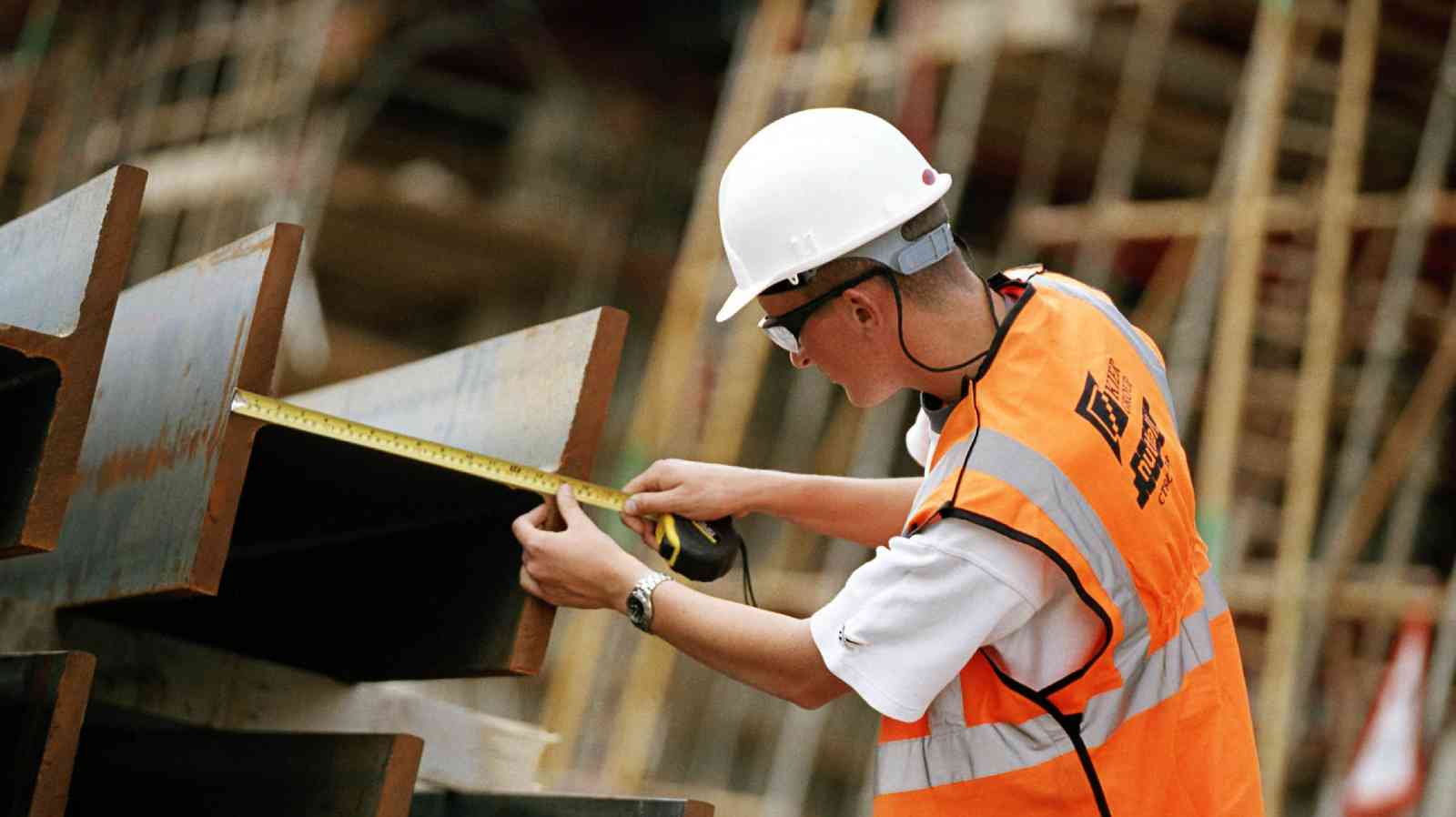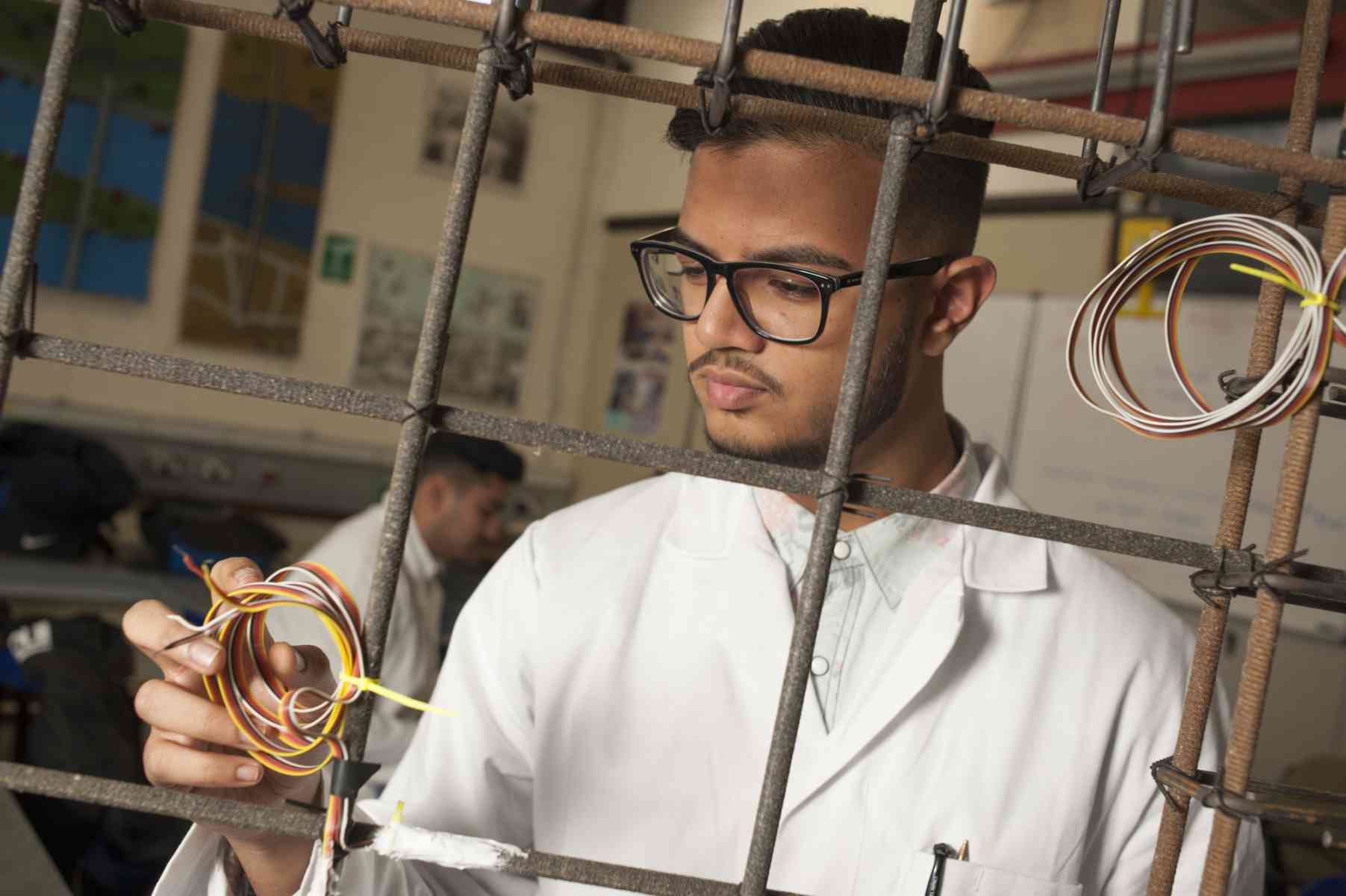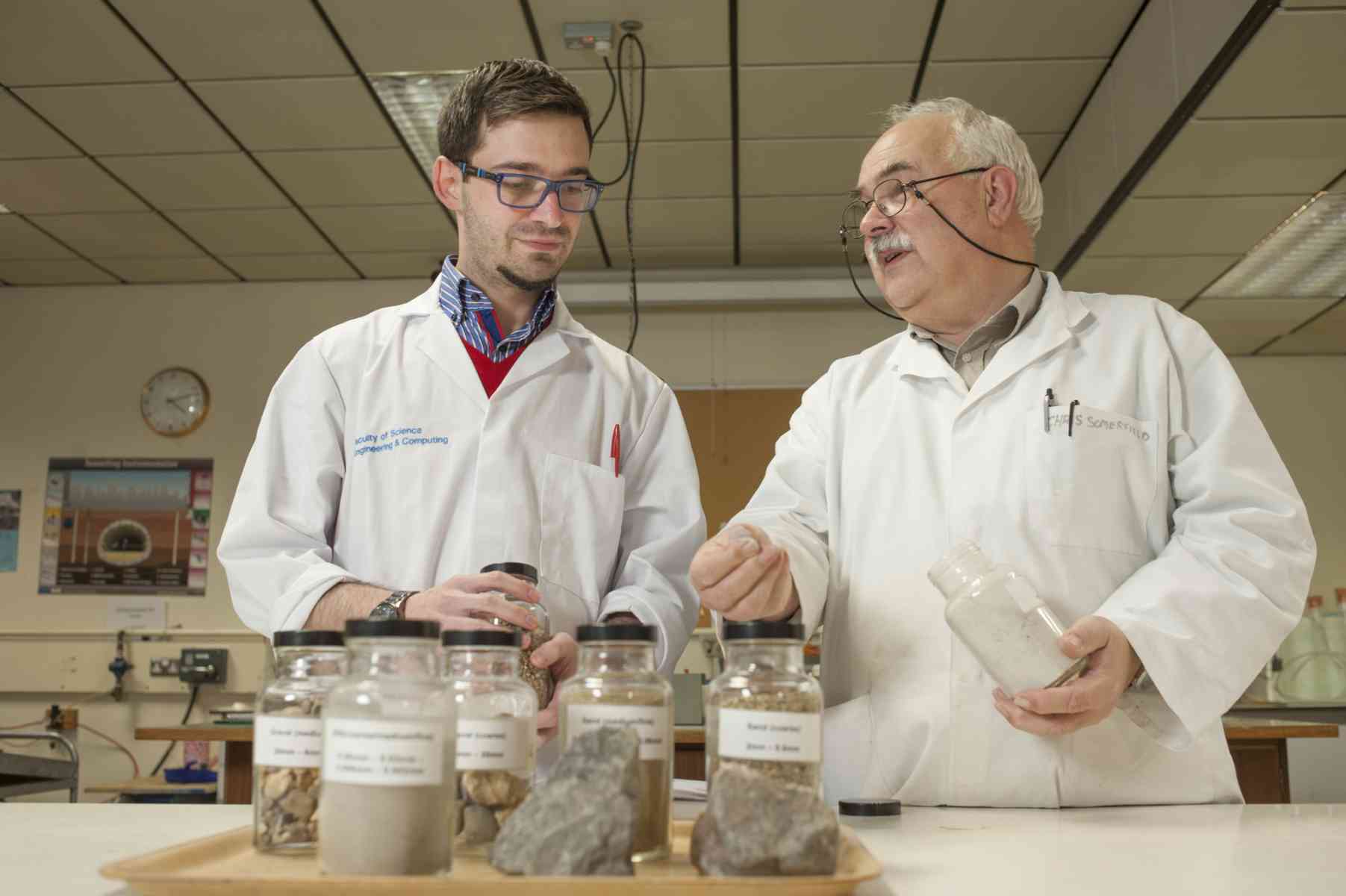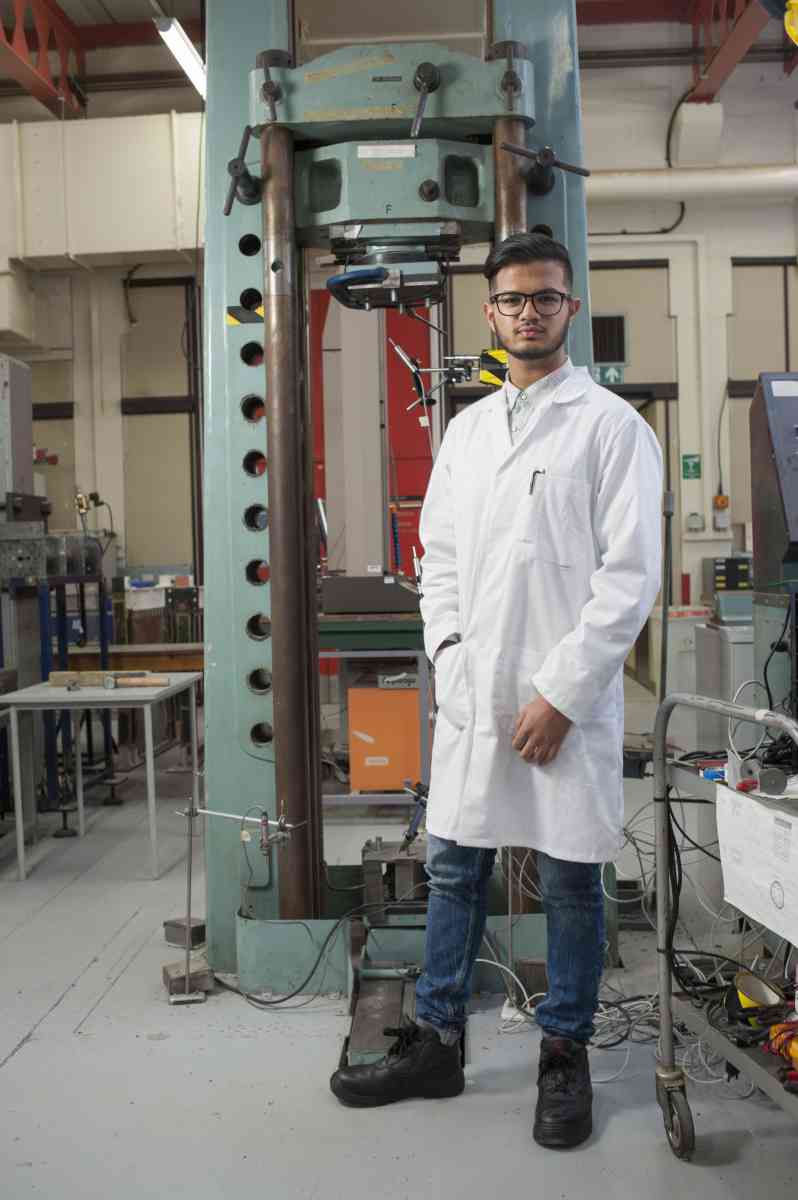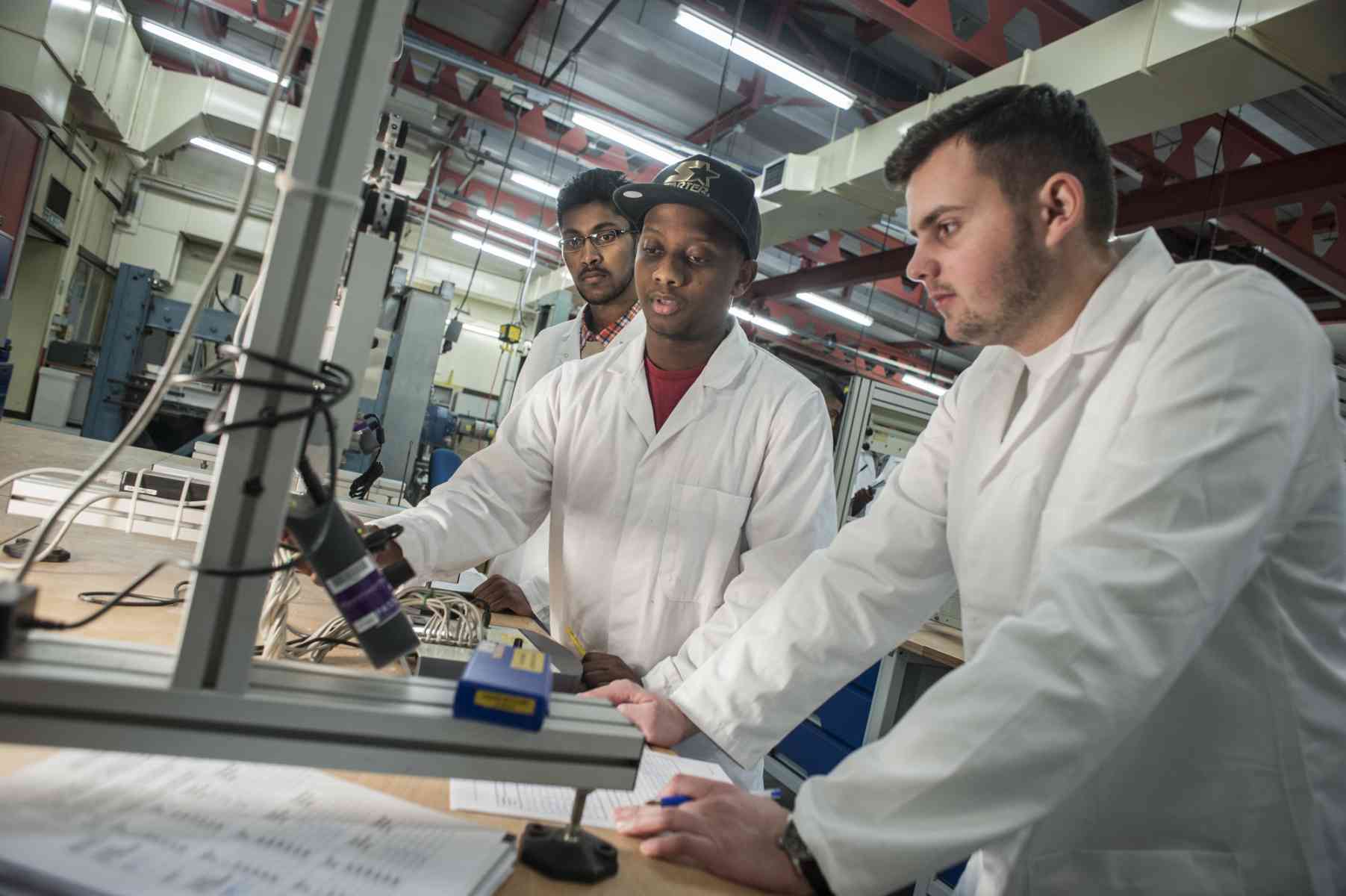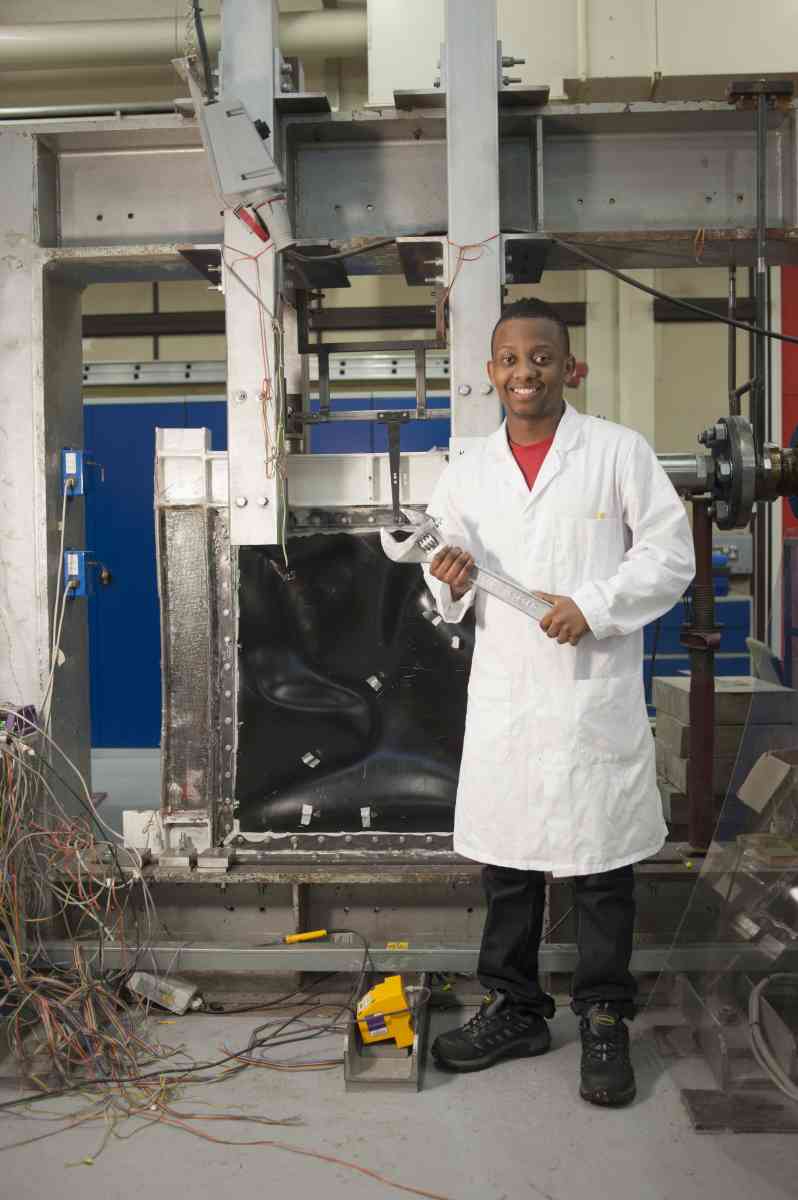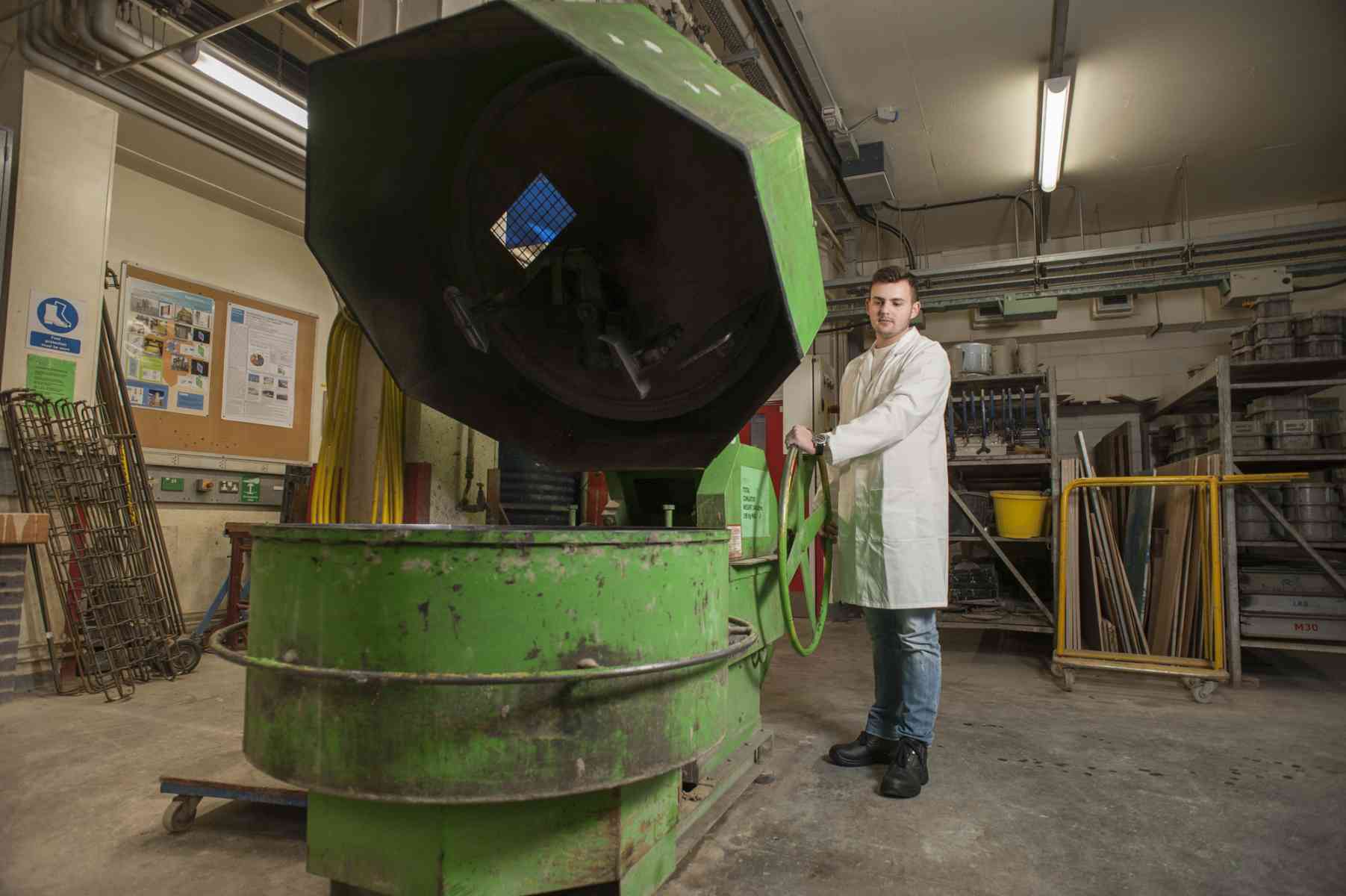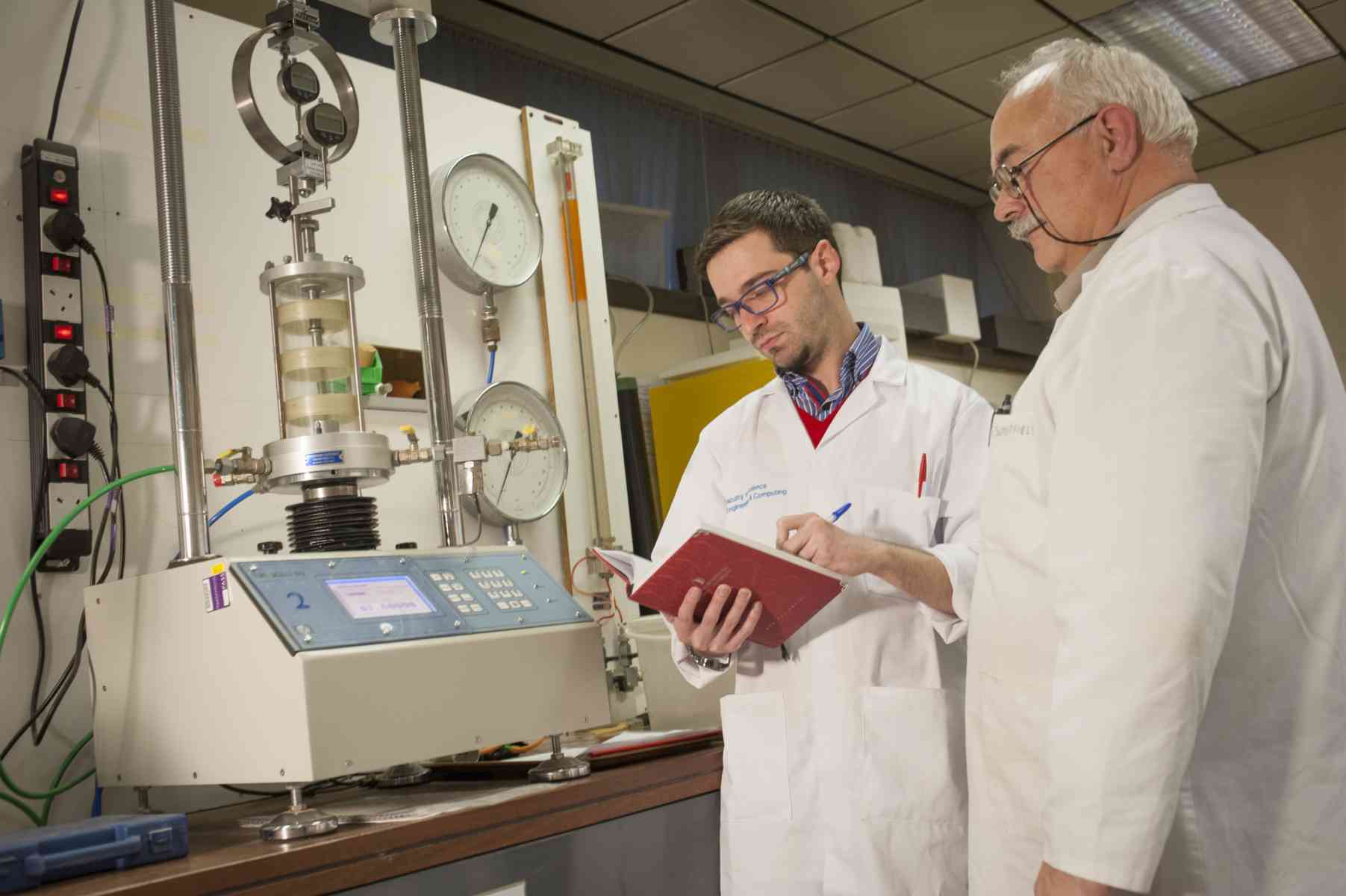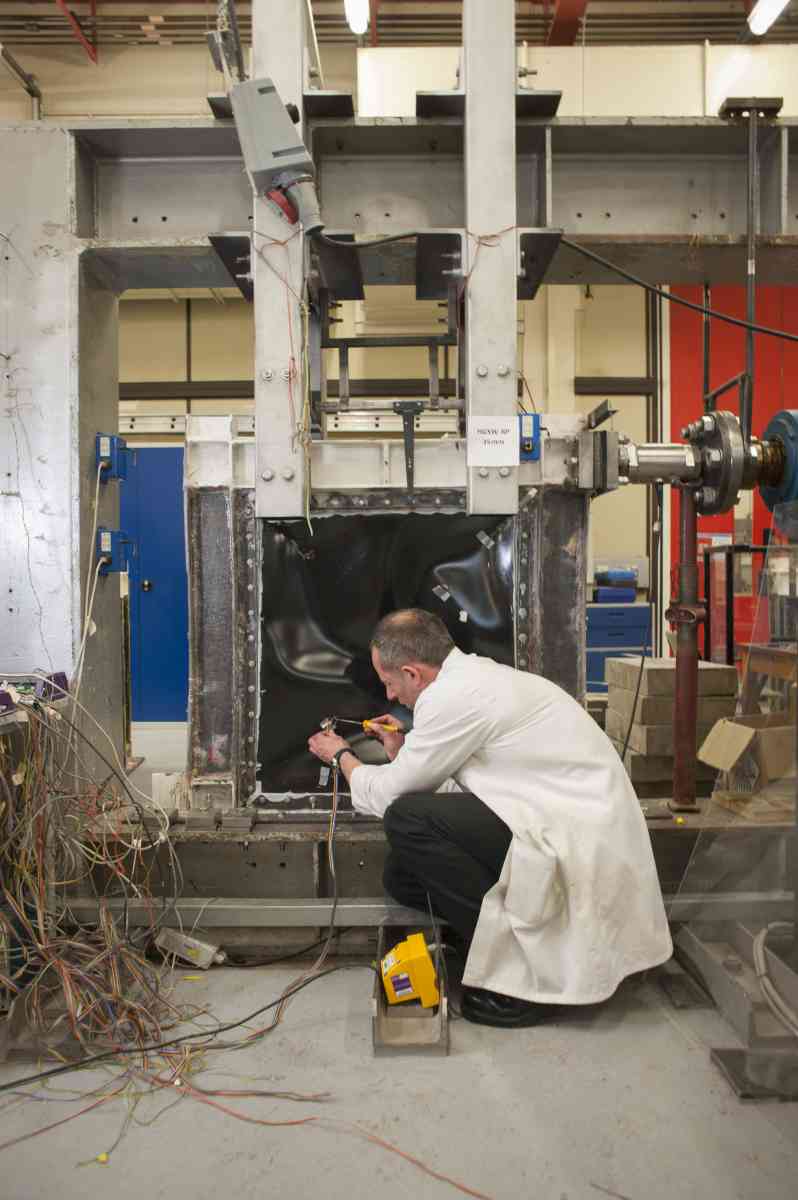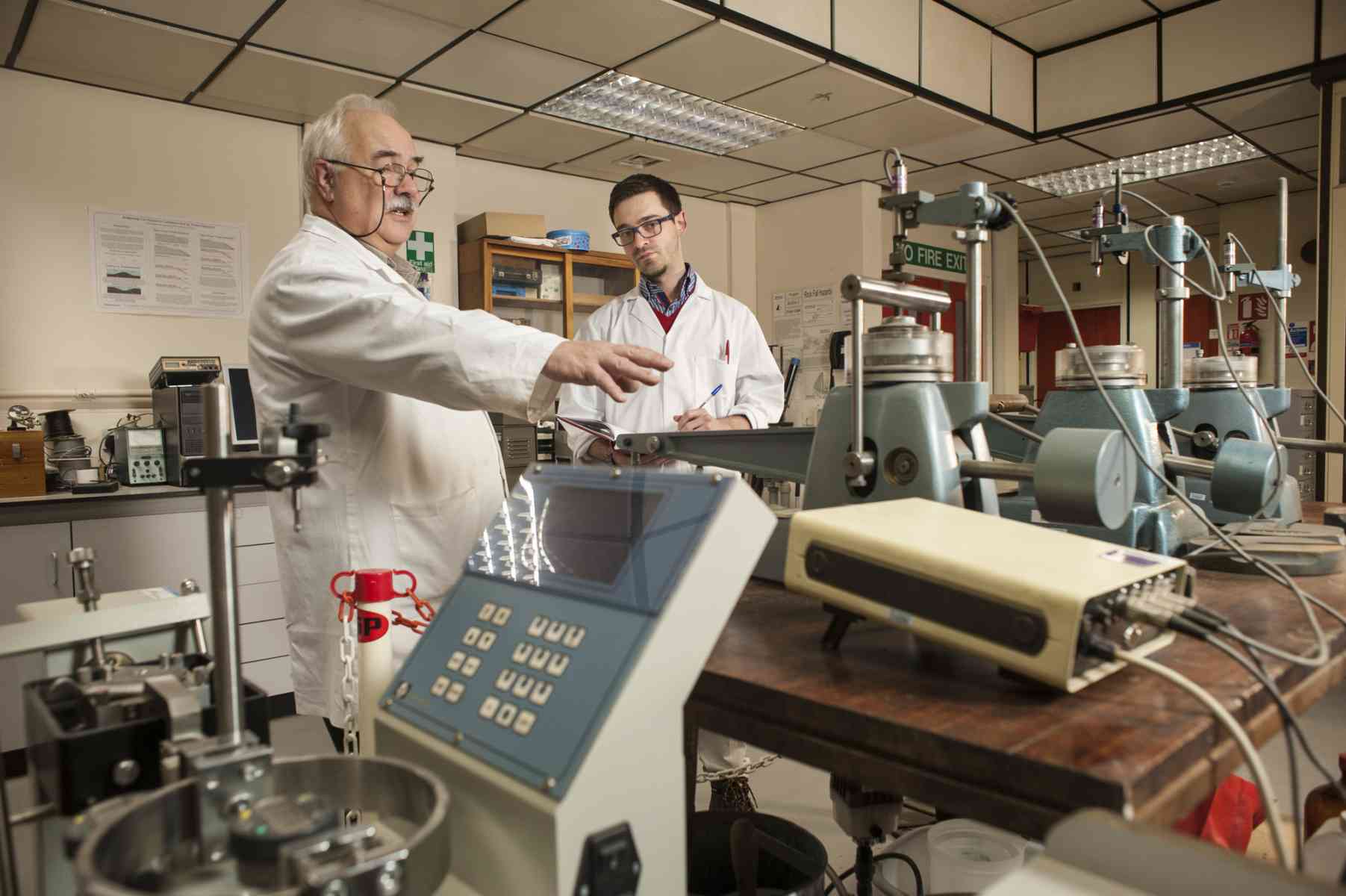Building Surveying BSc (Hons) Degree Apprenticeship

Teaching Excellence Framework (TEF) Gold award
Our commitment to high quality teaching has been recognised with a TEF Gold rating. The University has received an overall rating of Gold, as well as securing a Gold award in the framework's two new student experience and student outcomes categories.
Why choose this programme?
Are you interested in building and considering a career as a chartered building surveyor? This programme will help you gain detailed knowledge of building maintenance, care and conservation.
You'll study the business, financial and legal aspects of property and construction and learn how to advise clients. You'll examine building design, the reasons for constructions and the reasons why buildings fail. For one day each week, you'll attend university rather than your place of employment. There will also be learning activities at your workplace.
This programme is accredited by the Royal Institution of Chartered Surveyors (RICS) and is applying to be accredited by the Chartered Institute of Building (CIOB). Once you successfully complete the programme, you'll receive a BSc (Hons) Quantity Surveying Consultancy (Degree Apprenticeship) and a professional qualification through an End Point Assessment (EPA).
Further details are available on the Institute for Apprenticeships and Technical Education website.
| Attendance | Year of entry |
|---|---|
| 5 years part time | 2024 2025 |
| Main Location | Penrhyn Road |
Reasons to choose Kingston University
- Kingston University has developed this programme with input from leading employers mapping to the Level 6 Chartered Surveyor degree apprenticeship standard (ST0417).
- Kingston is actively involved in Assessment of Professional Competence (APC) and supports you in the process of qualifying as a chartered surveyor.
- A work-based learning project module, supported by your employer, will combine your own surveying interests with those of your employer.
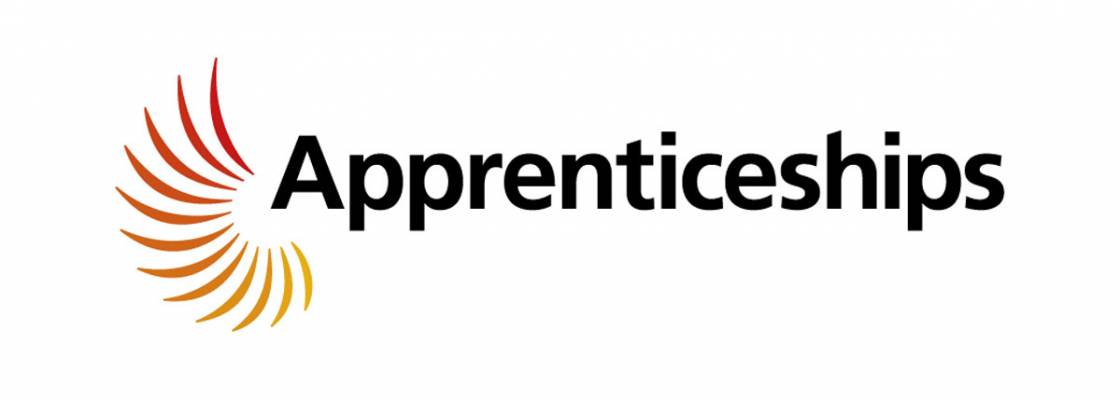
What you will study
As defined in 'English Apprenticeship: Our Vision 2020', published by the UK government in 2015, an apprenticeship is a job with a formal programme of training. This Degree Apprenticeship (DA) non-integrated programme is designed to provide the underpinning knowledge (K) identified by the approved apprenticeship standard (Chartered Surveyor Degree Standard Ref: ST0331).
For apprentices who wish to study Building Surveying to honours degree level (Level 6) through this five-year DA programme and aspire to achieve the professional status of Chartered Surveyor, their learning journey is set out so that they would gain the technical and theoretical knowledge up to the required level (Level 6).
The programme's content was also reviewed against the relevant DA standards ensuring that it delivers on set skills (S) and professional behaviours (B). This is captured by the mapping of the programme's modules to the sets of core/optional knowledge and skills as well as the set of professional behaviours. The academic delivery on this BSc (Hons) qualification is offered through a 1-day a week release which will predominantly account for the required 20% off-the-job training.
Modules
On this programme, you will gain a good mix of theoretical, practical, academic, management and industrial-based skills.
Please refer to the current list of modules and note that this is an indicative list of modules and is not intended as a definitive list as these could change before your year of entry.
Workshops for the programme
- RICS APC Essentials
- Library and Research Tools
- Ethics and Professional Practice Essentials
- Equality, Diversity and Inclusion
- APC Portfolio Preparation
Year 1
Year 2
Year 3
Year 4
Final year
Year 1 explores design. You'll examine what makes a building well or poorly designed. You'll use both sketching and computer-aided design packages.
Core modules
Engineering Design and Professional Practice
30 credits
The principal aim of this module is to provide students with a flavour of what is involved in engineering design and to develop the good academic practice and professional practice needed to attain professional status. The module introduces the key aspects involved in: planning a project from start to finish, design processes incorporating a sustainability agenda, building an awareness of the interactions across various disciplines, regulatory frameworks and Health and Safety procedures. The module develops good academic and professional practice by developing skills in self-reflection and recording professional development. The basic principles of measurement and manufacturing processes in a workshop and testing environment are also addressed in the module.
Structures, Materials and Construction Methods
30 credits
The module introduces you to the fundamentals of structural analysis and mechanical behaviour of a broad range of construction engineering materials. Structural elements such as trusses under equilibrium are studied and the external and internal parameters, such as force, moment, stress and strain, are defined and calculated. You will gain knowledge of the analysis of structural components and theoretical and numerical skills that are necessary to design real world structures. Materials testing methods will be used to determine the deformations and failures of the various construction engineering materials. A selection of materials for construction engineering applications, such as concrete, timber, metal, ceramics, polymer and composites, will be studied including their carbon footprint and impact on the environment. The module further introduces construction methods and building elements/features (e.g. walls, roofs, finishes and services). You will learn to undertake detailing/drawing of building elements and communicate this effectively in technical reports.
Year 2 you will study the relationship of buildings to the environment and the need for design innovation and sustainability.
Core modules
Applied Mathematics and Computing Applications
30 credits
The aim of the module is to provide a background in mathematics and equip you with the mathematical and computing skills essential for solving construction related problems. The module also introduces the use of computing methods in construction engineering for problem solving, visualization and data representation including cost modelling and risk analysis. The mathematics part comprises algebra, trigonometry and statistics.
Construction Management and Site Investigation
30 credits
This module introduces you to the fundamentals of construction management and the analysis of various construction site types with reference to their ground conditions. In order to develop in you an appreciation of the importance of the construction industry, its role in the UK economy will be analysed along with contextual factors that regulate and influence its operation. The role of important players in the construction sector will be examined in the context of procurement and contractual arrangements. Students will develop knowledge of site set-up operations and management. Students will also be introduced to soil mechanics and be able to apply their understanding and knowledge of geotechnics in site surveys and investigations as well as analyse their impact on the construction of permanent structures on the site.
Year 3 examines construction – how and why buildings fall apart. This is a key component of the knowledge base for chartered building surveyors.
Core modules
CAD and Building Science
30 credits
This module introduces you to computer-aided design (the current AutoCAD version) and provides opportunities to gain practice under guidance of CAD and REVIT in order that you may develop proficiency in its use. You will also gain an understanding of the fundamentals of structural behaviour of common building elements and a working knowledge of environmental science principles and material properties. The concept of BIM (Building Information Modelling) will also be introduced during this module. The module is taught by lectures and practical sessions and typically assessed by a design project of practical exercise and individual portfolio which must include structural calculations.
Commercial Construction Technology
30 credits
The module aims to extend your knowledge and skill in construction technology including services from the basic types of construction to framed and more complex commercial structures. By the end of the module you should have developed a critical knowledge of building types, be able to interpret drawings, produce sketches and appreciate the reasons for the selection and use of different construction materials and services solutions.
Contract Administration
30 credits
This module aims to assist you to build on their understanding of the English legal system and law of contract developed at Level 4. You will gain deep and broad knowledge of standard contract forms used in the UK construction industry and the legal duties and responsibilities of the parties involved in construction contracts. The module further extends your critical knowledge and understanding of the contract administration and financial management duties of the quantity surveyor. Although there will be some lectures, the teaching and learning emphasis will be placed on the student developing their core knowledge and associated interpersonal skills through the use of scenarios and workshops.
Year 4 in the Building Maintenance and Management module you will learn how to keep buildings in use.
Core modules
Building Design and Application
credits
This module integrates knowledge and skills you have previously acquired in the complete suite of modules of this programme. The module provides the opportunity for the advanced practical application of building surveying knowledge and skills via the examination of a particular a typical practice scenario through to detailed proposals regarding a solution to that problem. The module is delivered by keynote lectures and workshops. Assessment is by major project and individual reflective essay.
Building Maintenance & Management
credits
The module will enable you to appreciate building design related to function and the regulation that controls design decisions. You will develop knowledge of the strategic and practical aspects involved with the effective and efficient management and maintenance of buildings. On a broader level, the module will also consider how a building relates to its location and it will consider the social, economic and environmental consequences of design. You will develop your skills of building appraisal so that you can diagnose building defects and their causes, including relating to design.
The module will cover the principles of setting up and managing maintenance and small improvements works and monitoring and evaluating building performance from both the owner and occupier perspective. It will consider both legislative and financial considerations and the increasing importance of managing carbon and energy as well as being provided with an introduction to the principles of refurbishment.
At the end of the module, you will take part in a short field trip and undertake work which will be incorporated in module CE6101. The module is taught by lectures, seminars and tutorials.
Your final year includes workshops. It culminates in a major group project, along with an independent research project. You will have the opportunity to combine and present all your learning from the course.
Core modules
The Existing Built Environment
30 credits
This module provides you with a critical understanding of heritage in the built environment. You will study the legislative and regulatory protection of heritage assets and explore the current debates surrounding such buildings including the potential and actual conflicts between competing interests. You will deepen their understanding of historic building materials in order that you can advise on appropriate conservation and repair, together with options for adaptation to new uses. The module is taught through lectures, seminars, workshop discussions and visits to heritage buildings and is assessed through case studies and coursework.
Professional Practice in Context
30 credits
This module builds on your existing knowledge of the law and professional practice. It further develops your analytical and critical skills when encountering legal and professional practice problems.
Knowledge of professional liability law is enhanced, along with an understanding of other aspects of professional practice, including ethical, legal and due diligence requirements.
This module also ensures that students develop a holistic understanding of sustainability as it applies to built environment professional practice.
Individual Project
30 credits
The individual project is an opportunity to explore a subject of your own choice. You will initiate, design and execute a small-scale research project under supervision. Your project will draw upon material from all modules previously or currently taught and provide a culmination to your degree. This allows you to develop and practice your research skills that will be invaluable for the future.
You will work independently, studying a topic in depth, reviewing previous work, and collecting, interpreting and analysing information. This is also intended to develop your ability to communicate clearly and succinctly orally, graphically and in writing. In undertaking the work, you should demonstrate knowledge and competence in reviewing literature and in using one or more of a range of research methods to collect and analyse data and draw well-founded conclusions.
To support you, a series of workshops will be given along with individual one-to-one supervision. Assessment is by submission of an initial formative research statement and summative assessments comprising an interim report and the completed project.
Please note
Optional modules only run if there is enough demand. If we have an insufficient number of students interested in an optional module, that module will not be offered for this course.
Entry requirements
Teaching and assessment
The academic delivery on this BSc (Hons) qualification is offered through a 1-day a week release which will predominantly account for the required 20% off-the-job training. It designed for those taking up building surveying-related apprenticeship employment with their employers. 30 credits at Level 6 will be delivered via a work-based learning module.
The remaining 330 credits will be taught via an intensive one-day a week education programme at Kingston University for each of the five years of the programme. The degree apprenticeship programme has been designed for those wishing to undertake a challenging programme which will enable them to study in depth many aspects of building surveying.
It is also designed so that the academic team working in partnership with the employer ensure that, in addition to the relevant practical experience gained through the job itself, a specific on-the-job training takes place to develop the technical and professional skills and behaviours much more fully and in line with standards. This is captured by a Stakeholder Commitments Matrix.
Who teaches this programme?
The programme is taught at the Faculty of Engineering, Computing and the Environment. Faculty staff have a wide range of experience across research and industry and continue to practice and research at the cutting edge of their discipline. This ensures that our programmes are current and industry informed ensuring you get the most relevant and up to date education possible.
Staff will use their experience and professional networks to hone your skills and shape you into the next generation of science, technology, engineering and mathematics (STEM) graduates.
Postgraduate students may run or assist in lab sessions and may also contribute to the teaching of seminars under the supervision of the module leader.
Facilities
There is a wide range of facilities for practical work at our Penrhyn Road campus, where this course is based. You will have access to a modern environment with the latest technology and industry-standard equipment, including:
- extensive materials and structures facility for concrete, masonry, steel and timber;
- geotechnical and hydraulics testing facilities; and
- surveying equipment, such as satellite global-positioning systems.
Dedicated computer-aided design facilities include:
- a range of CAD/CAM packages, such as Ideas, SolidWorks and AutoCAD;
- finite element analysis
- computational fluid dynamics; and
- virtual instrumentation.
End-Point Assessment (EPA)
Each apprentice on an approved Apprenticeship Standard is required to take an End-Point Assessment (EPA) to complete the programme. The EPA is delivered by an End-Point Assessment Organisation (EPAO) that is registered with the Education and Skills Funding Agency (ESFA).
The EPA is either integrated as part of the apprenticeship or completed after the course element. If an apprentice is completing the EPA after the course element, they must ensure they have successfully completed their learning, achieved the gateway requirements and finished uploading their evidence prior to taking the EPA.
Local Employer Group (LEG)
The LEG was established to monitor, support and enhance the delivery and operation of the programme. This includes management and periodically reviewing of work-based learning by this established local employer group with the aim of delivering an apprenticeship programme that is a high-quality satisfactory experience for all. Representatives of apprentices are invited to serve on the group. Terms of reference include:
In advance of each group meeting, the course administrator asks the apprentice representative to gather feedback from their fellow apprentices to be channelled through them at the meeting.
Information for employers
This is a Level 6 Non-integrated Apprenticeship. Apprentices will be required to complete a Royal Institution of Chartered Surveyors (RICS) accredited BSc/BSc (Honours) and achieve the status of Chartered Surveyor in one of three distinct pathways, the one in relation to this apprenticeship programme being Building Surveying, which includes:
- Providing professional advice on buildings and construction, ranging from city office blocks and skyscrapers to home extensions.
- Undertaking detailed surveys of buildings, identifying defects and advising on repair, maintenance and restoration options.
The typical duration for this apprenticeship is 60–66 months but this will depend on the previous experience of the apprentice and access to opportunities to gain the full range of competence.

Next steps
Employees
If you are currently employed full time and would like to find out more about apprenticeships, please ask your employer to contact the Kingston University apprenticeship team.
Employers
If you are an employer interested in how apprenticeships can support your organisation and employees, please contact the apprenticeship team for further details.
Course changes and regulations
The information on this page reflects the currently intended course structure and module details. To improve your student experience and the quality of your degree, we may review and change the material information of this course. Course changes explained.
Programme Specifications for the course are published ahead of each academic year.
Regulations governing this course can be found on our website.

